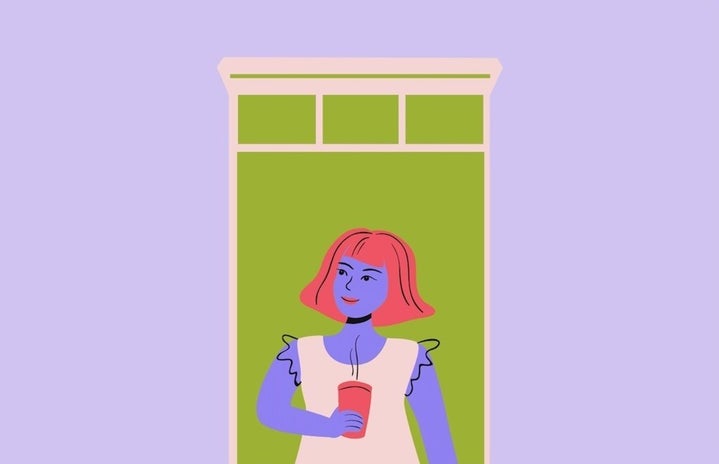We’re all familiar with the feeling of not being good enough. Whether that’s in relation to school, jobs, relationships or sports, falling short of expectations is something the vast majority of us have experienced. Very often when we feel we don’t measure up, it’s a result of falling into a comparison trap. Too many times have I found myself feeling dejected and disqualified for things because a little voice in my head convinces me that there’s someone else more talented, more skilled, more qualified than me, and as a result, we don’t step out into areas because of our own insecurities – we are our own worst enemies.
Imposter syndrome is broadly defined as ‘an internal experience of believing that you are not as competent as others perceive you to be. While this definition is usually narrowly applied to intelligence and achievement, it has links to perfectionism and the social context.’ There’s a whole lot of stuff that is caught up in this definition, but what sticks with me is the over-arching sense of self-doubt and the consequential fear of being ‘exposed’ for not being as perfect as you lead people to believe. The thought of failing at something, be that an exam or a job, not only installs a sense of disappointment in myself but furthermore a fear of the judgment of others, that somehow people will think less of me because of my shortcomings. We are so concerned with how we appear to other people that we let this interfere with our own confidence and the goals we set. It seems so often that our default is to assume we’re not good enough, to assume we haven’t got the ability or capability to do things well and that we should in fact just give up.
Embarking on the uphill climb of my twenties, I have noticed this creeping in more and more frequently. Faced with so many decisions, especially as students in a pandemic, there is an immense pressure to perform, to have it all sorted and to impress people with our life plans. Suddenly, graduation doesn’t seem a million miles away and the reality that we’ll be leaving the safe bubble of university is settling in and is alarming, to say the least. We’re faced with endless applications to jobs or grad schemes and constantly trying to measure up if we have a chance at succeeding. I know for myself, confidence in my abilities isn’t something that comes naturally. I’m an inherently doubtful person and as a result, I often find myself battling with imposter syndrome. But when 2021 rolled around, I made it one (of many) of my New Year’s resolutions to learn to believe in my competence and, for use of a better word, to back myself. It’s not fun to be in a constant cycle of negativity and convincing yourself that you’re a failure when in actuality, this is just not the case. Because at the end of the day, if we don’t believe in ourselves and our talents and skills, then who will?
Especially as women, we have grown up in a society that has told us that our voices are not valued, that we have to speak louder in order to even be noticed and respect is not always a given. It is not our fault that this is the discourse of our world, that is thankfully beginning to change for the better, but if we can learn to be our own ‘biggest fan’ (cringe, I know) then that should be the most important person in our corner. As women, we should not be apologising for the space we take up or for being assertive with ourselves and those around us – and don’t get it mixed up with being bossy. If we can learn to embrace every part of our being, backing ourselves in whatever sphere we enter into, we can begin to value ourselves enough to not let failure dissuade us or let other people define our belonging.
Resilience to the imposter is not something that happens overnight, and I’m still figuring out how best to deal with it when the shadowy figure creeps in. But what I have learnt, is that we have a choice whether we tear ourselves down or build ourselves up. Getting things right the first time is not a necessity, and mistakes we learn along the way can often be key in developing our skills and confidence. I know that ultimately, believing in myself in spite of what society says, is the key to building courage and strong identity and this is fundamental in both our academic and personal lives.
Living in accordance with our values and beliefs is what will drive and motivate us and provide the focus and direction to persevere even when our circumstances tell us otherwise. Let 2021 be the year that we’re not held back by our own fears and insecurities, striding into all situations with confidence because we have the ability to be unapologetically and authentically ourselves.


